Yep, Still Engaging
In which Norm boldly goes deep on the NEXT GENERATION movies, and also the new season of PICARD because why not.
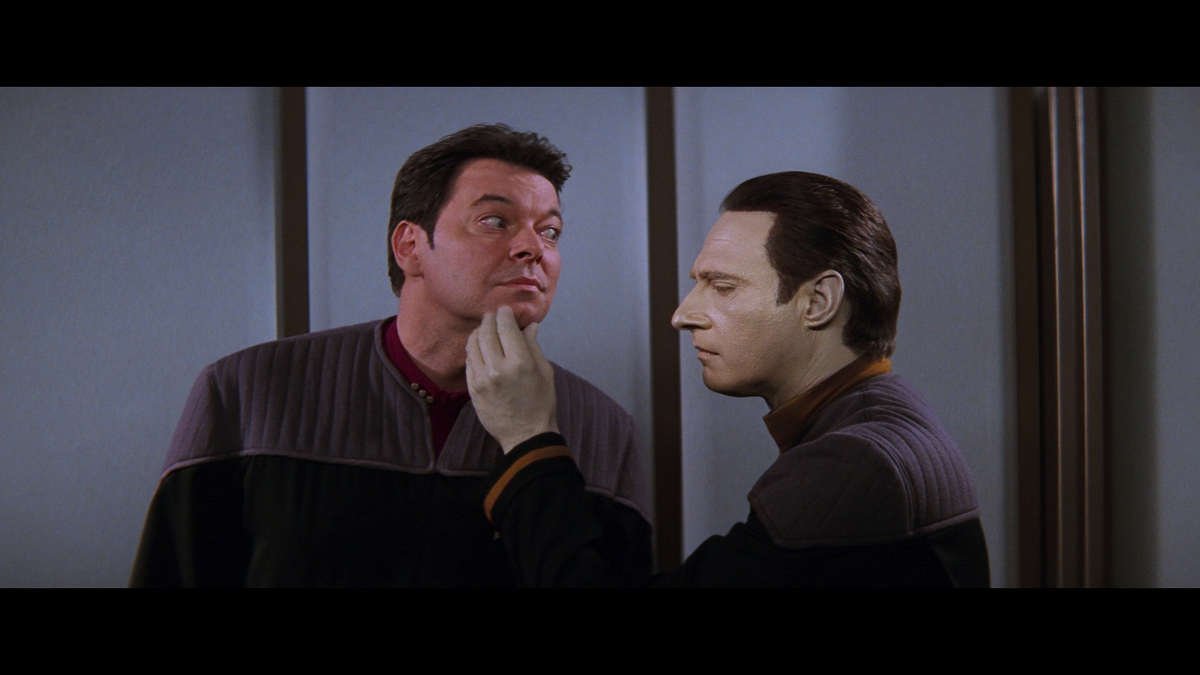
People don’t really believe how beloved Star Trek: The Next Generation was in its day. I was at the SkyDome in Toronto when the series finale "All Good Things" was screened on the Jumbotron for an estimated 40,000 people, and while the presentation was less than optimal – the audio echoed around the stadium in a way that rendered dialogue almost incomprehensible every time the score started up – it was a joyous fan event unlike anything else I’ve experienced in my career.
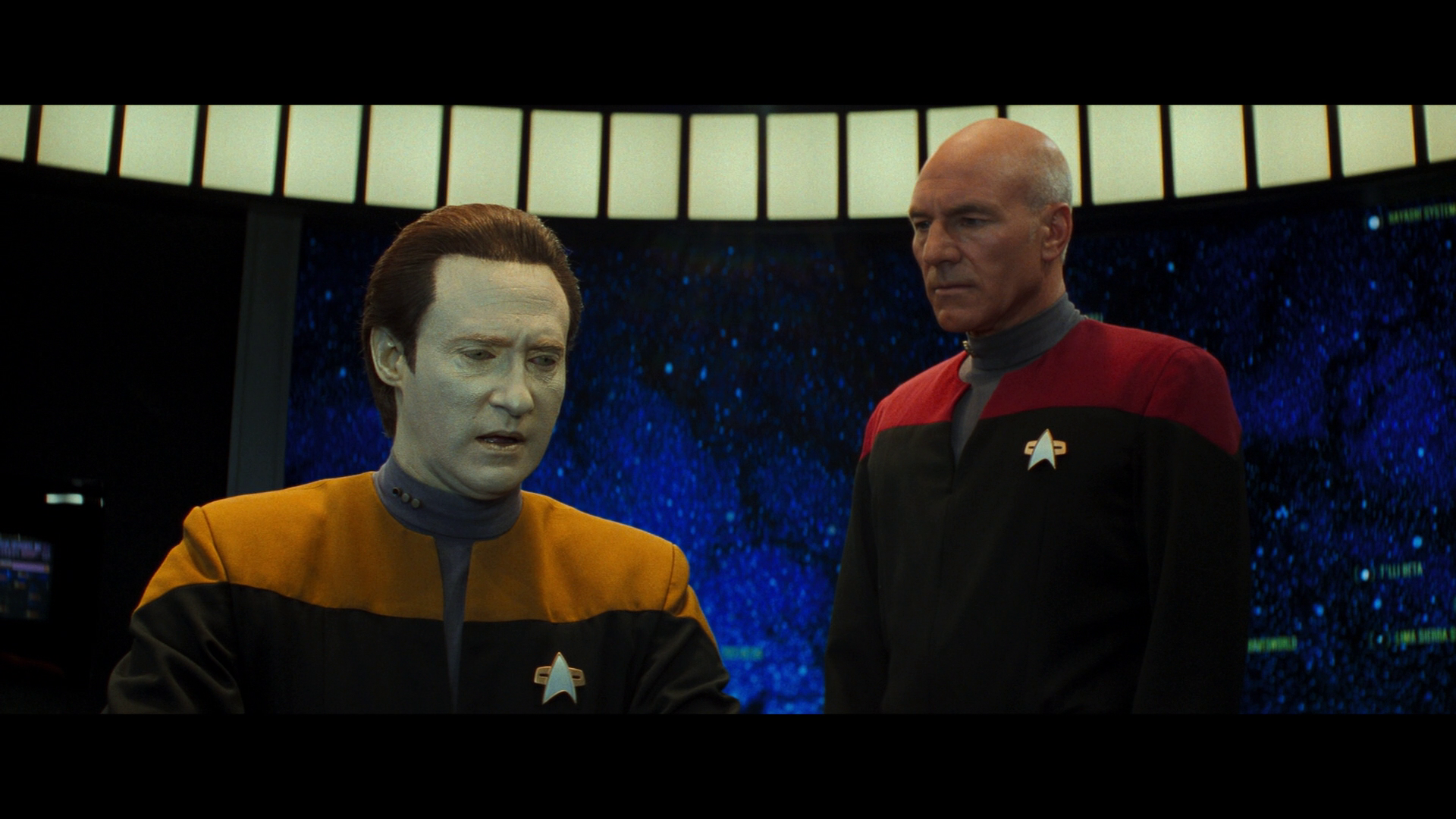
The Next Generation crew was adored, and the decision to wrap up the show after seven years and transition the characters into feature films had everybody very excited. And the announcement that the first feature, Star Trek: Generations, would arrive just months after the end of the series had fans absolutely stoked: Think of what the bigger budget and scope of a motion picture would allow Rick Berman and Brannon Braga to do with the crew of the Enterprise-D!
I was on the Generations junket, and everyone was hitting that same message: Patrick Stewart joked about not having to stand shoulder-to-shoulder with his castmates to fit all the characters into a 4:3 television frame, Berman and Braga said they loved the different rhythm of writing without commercial breaks, and Brent Spiner good-naturedly griped about how bringing Data to the big screen meant a more complex makeup regimen for the character. But everyone was sure that the movies would be different from – and superior to – the show.
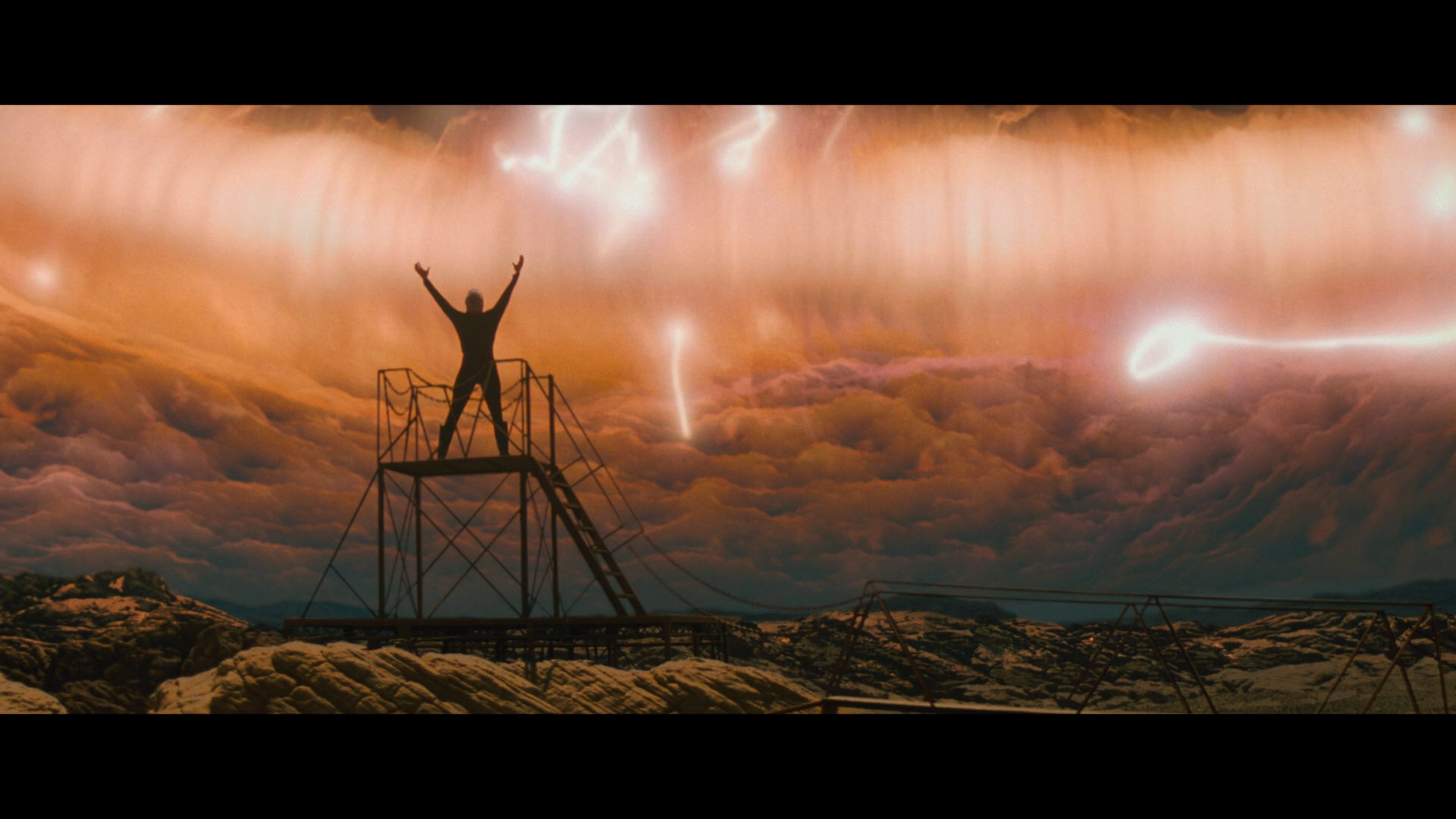
The thing is, we’d already seen Generations when we did the interviews; that’s how a press junket works. And although the Picard movies had its moments, the films never really delivered on the ambitions thrown around at that junket. Most of the Next Generation movies just feel like extended episodes of the TV series. Which isn’t a bad thing, necessarily – we’re coming to see these movies because we loved that series, after all – but you can feel the movies straining to find a suitably epic scale at which to work.
I have a theory about this, and it's pretty simple: The Next Generation movies feel smaller because they are extended episodes of the show, more or less. By mounting Generations while the series’ seventh season was still in production – something else everyone good-naturedly griped about on that junket – Berman and Braga ensured they were just continuing the series in a different format, picking up right where they left off.
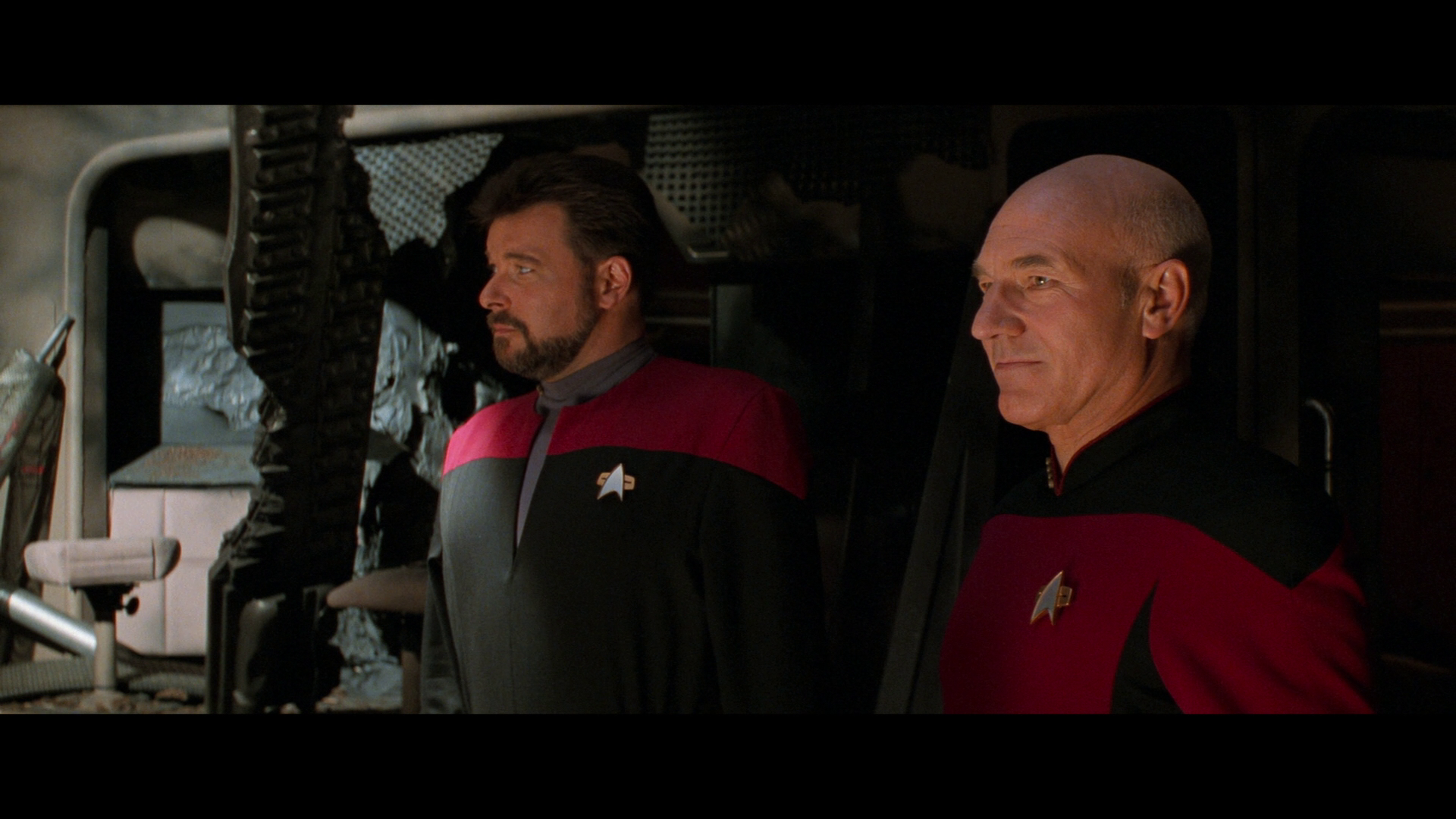
When the original Enterprise crew reassembled for Star Trek: The Motion Picture, we had to meet them again and notice the passage of time: McCoy could have a country doctor’s beard, Spock was an entirely different person, and so on. With Generations, there’s been no time for growth: Everyone’s still on the Enterprise-D, Data still wants emotions, Geordie still has that increasingly cheap-looking visor, the Riker-Troi-Worf triangle is a problem no one wants to deal with directly. (Which, honestly, fine.) And even though having a whole galaxy to explore means the possibilities for new adventures are endless, the potential for character drama is restricted.
By comparison, look at the original-flavor Trek movies, nearly all of which involve James Kirk being drawn unwillingly into their stories: The Motion Picture finds him taking command of the Enterprise over the objections of its actual captain, The Wrath of Khan has him running a training mission hijacked by the return of an old enemy, The Search for Spock has him stealing the ship to mount a rescue mission and in The Voyage Home opens with his entire crew as fugitives preparing to surrender to Starfleet, then deciding to do the whole time-travel save-the-whales thing. It isn’t until The Final Frontier that Kirk is a proper starship captain again, and of course we all know how that one went.
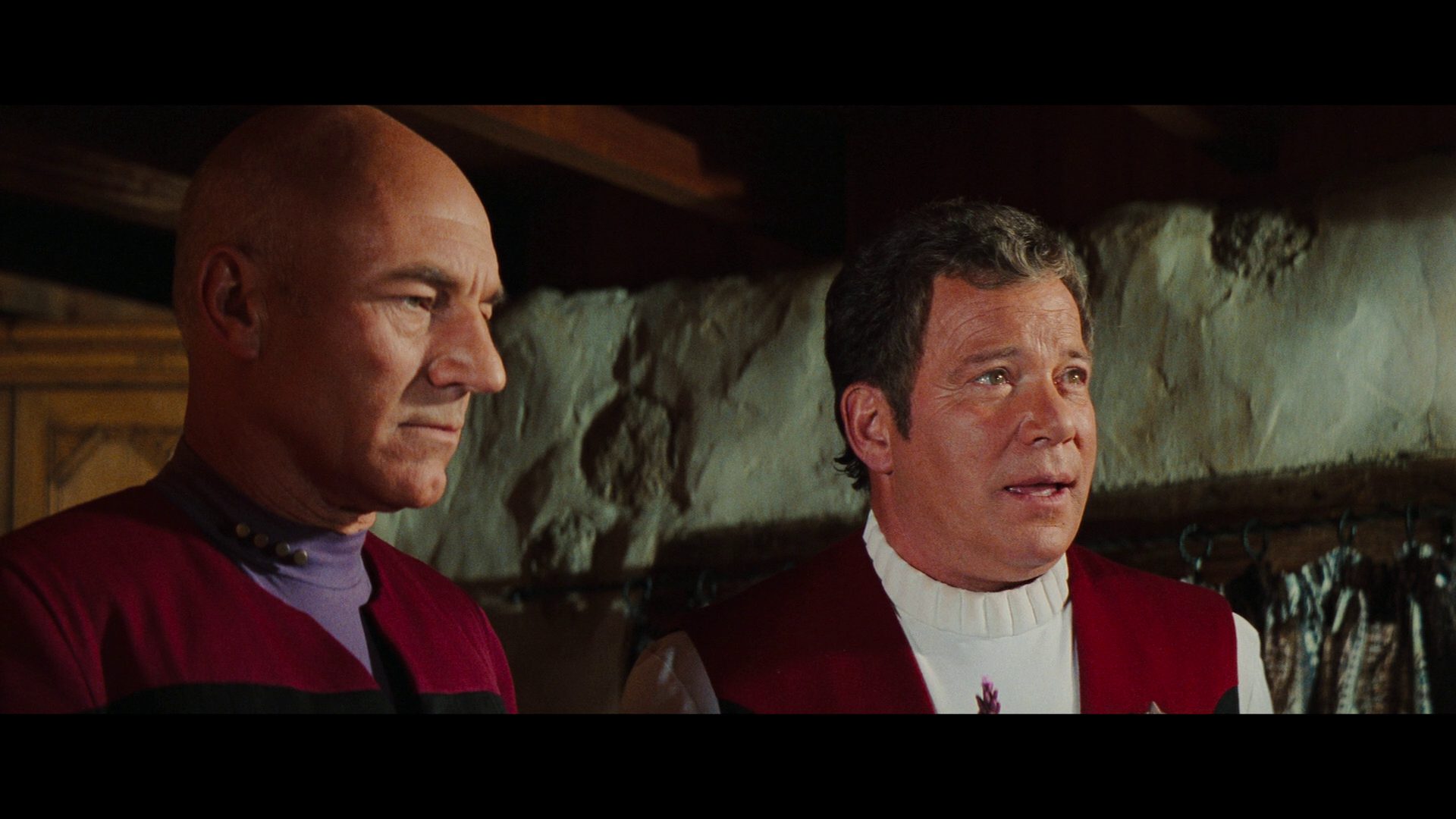
Picard and company, on the other hand, are almost never on the back foot. They can be surprised by twists of the plot, but they’re always united as a crew – even when they briefly turn against Starfleet in Insurrection. The one movie that challenges the status quo is also the best one: First Contact, which really does have the sprawl and weight of a feature film. (Jonathan Frakes, directing his first Trek movie, used James Cameron’s Aliens as a reference – and took away all the right lessons from that film about a confident military platoon overwhelmed by a relentless infestation.)
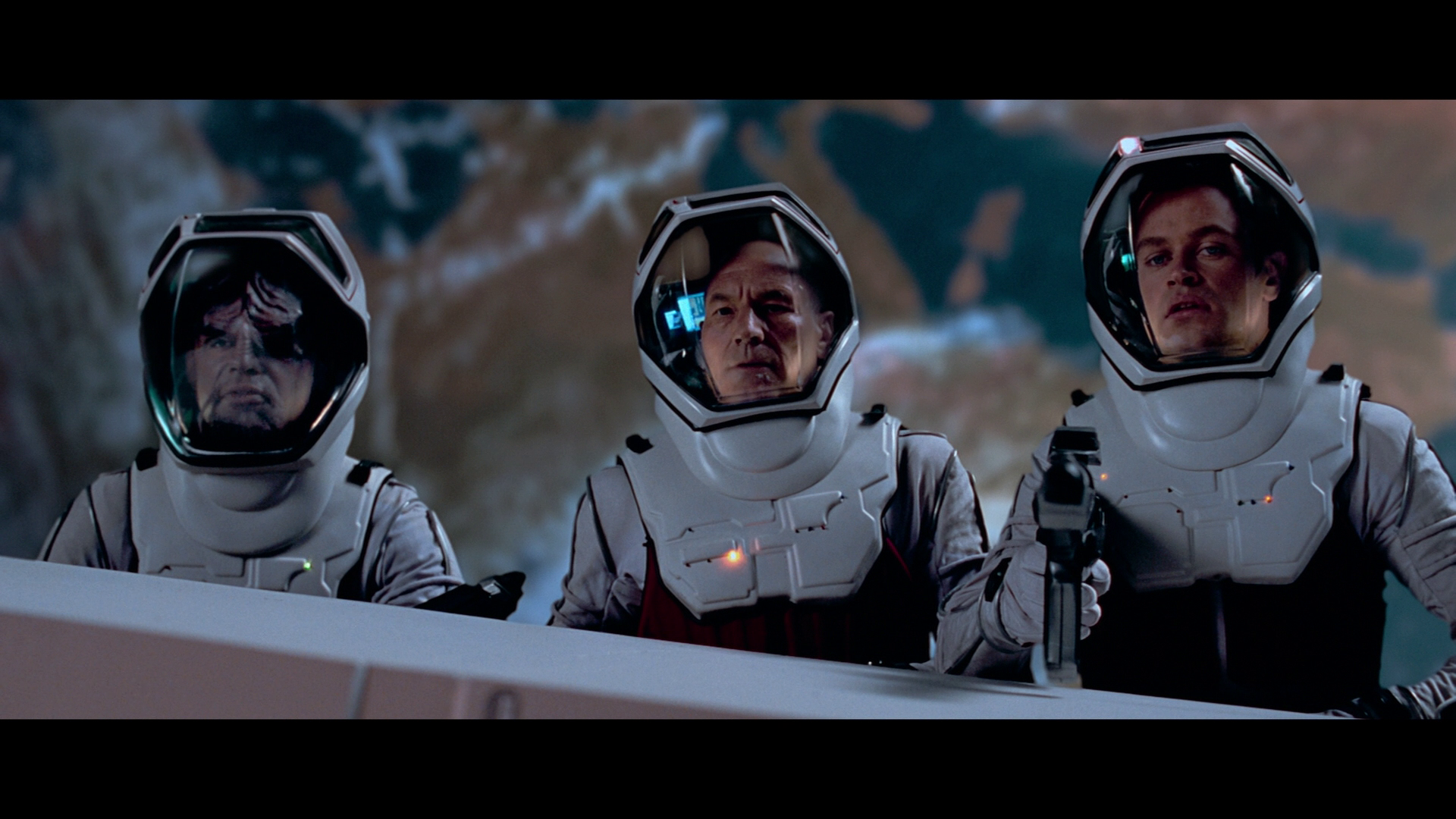
It also has the rhythms of one, with big set pieces balanced with character development and subtle world-building, while James Cromwell has a great time puncturing the self-importance of everything as a burnt-out Zefram Cochrane and Stewart forges a warm connection with Alfre Woodard. It’s got everything, really, and a script that ties this story to the fan-favorite Next Generation arc “The Best of Both Worlds” is also a smart touch: It lets First Contact pull on the Wrath of Khan string of an old enemy returning and a hero forced to confront a long-suppressed trauma, which gives it a sense of depth and weight missing from the other features. (It also explains why they kept trying to bring back the Borg in the first two seasons of Star Trek: Picard, even as every new appearance diminishes the impact of a threat established as so terrifying and unbeatable that all our heroes could do is run away from them at top speed.)
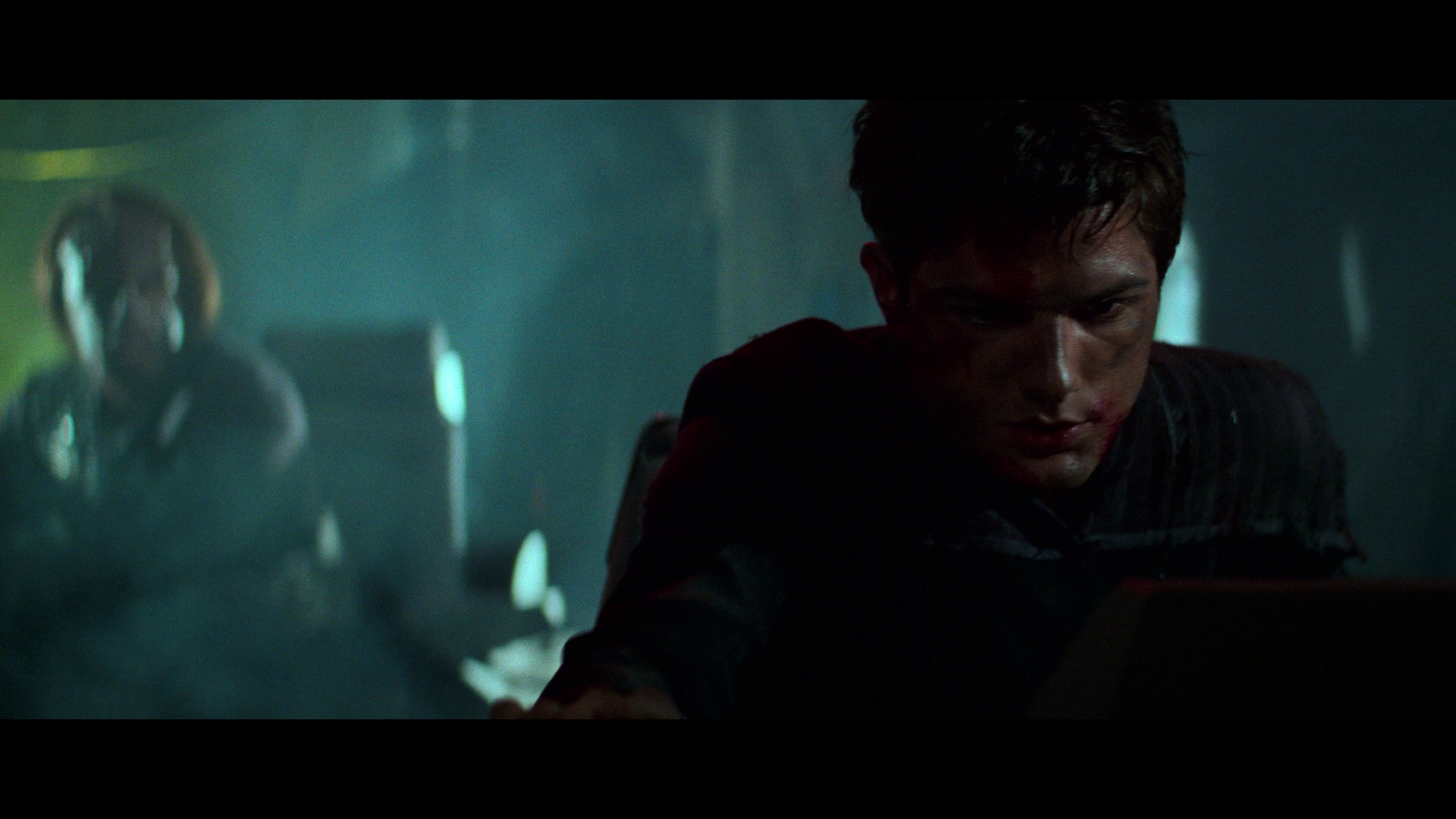
And here's the twist: A couple of decades later, it's not so bad that these movies feel like expanded episodes. Most of the original Trek films do, and we still love them; it's a chance to revisit the space friends we haven't seen in a long while. That's also the reason the third and final season of Picard is succeeding where the two preceding runs failed; it's very carefully constructed to reunite the crew of the Enterprise-D for a story that properly serves them all – and, since it’s been twenty years since we last saw them all together in Nemesis, the actors now have new notes to play that weren't possible in the movies.
After two very frustrating seasons of a show that couldn’t figure out what its stories were or how its now-regal protagonist should move through then, the current run has been a pleasure, celebrating all things Trek while telling a lively, complex story. There’s some fan service, of course – and showrunner Terry Matalas has been incredibly graceful in dealing with the endless Twitter whining from people who have very strong expectations of which character should wear which hat, or whatever – but for the most part it’s just been a great ride.
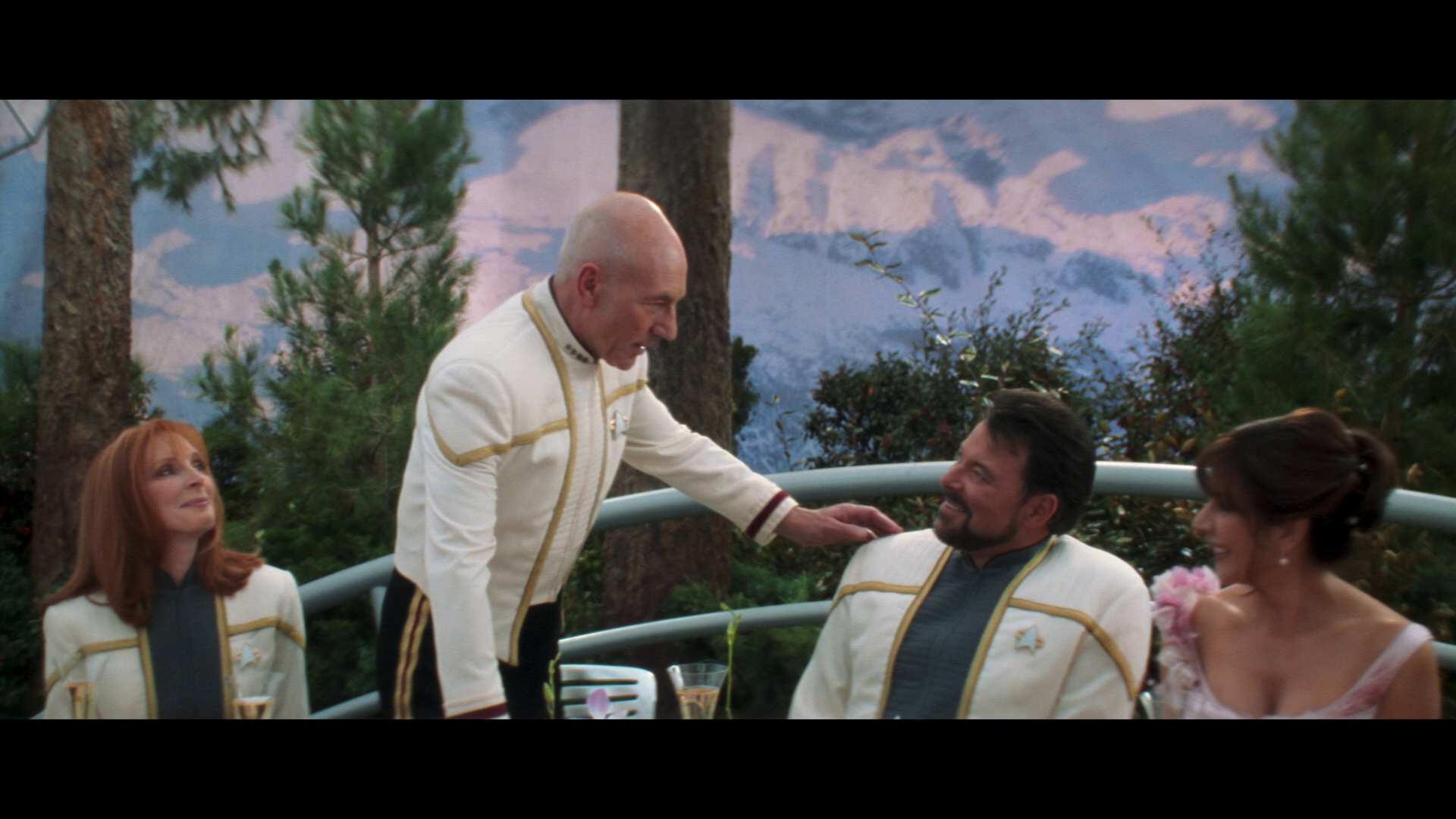
And then there’s the fact that Paramount just released all four of the Next Generation movies in new 4K restorations, both individually and in the Star Trek: The Next Generation Motion Picture Collection. All four films look downright pristine – the screencaps here were taken from the companion Blu-rays, which are remastered from the new restorations – and I have to admit Nemesis looks especially good, beautifully representing Jeffrey L. Kimball’s dark, grainy anamorphic imagery. First Contact had plenty of dark, creepy scenes, but it’s lit like a TV show; Nemesis feels sinewy and intentional, in a way that I suspect has helped greatly with the “eh, it wasn’t that bad” rehabilitation in recent years. Except that, you know, it is. It really is.
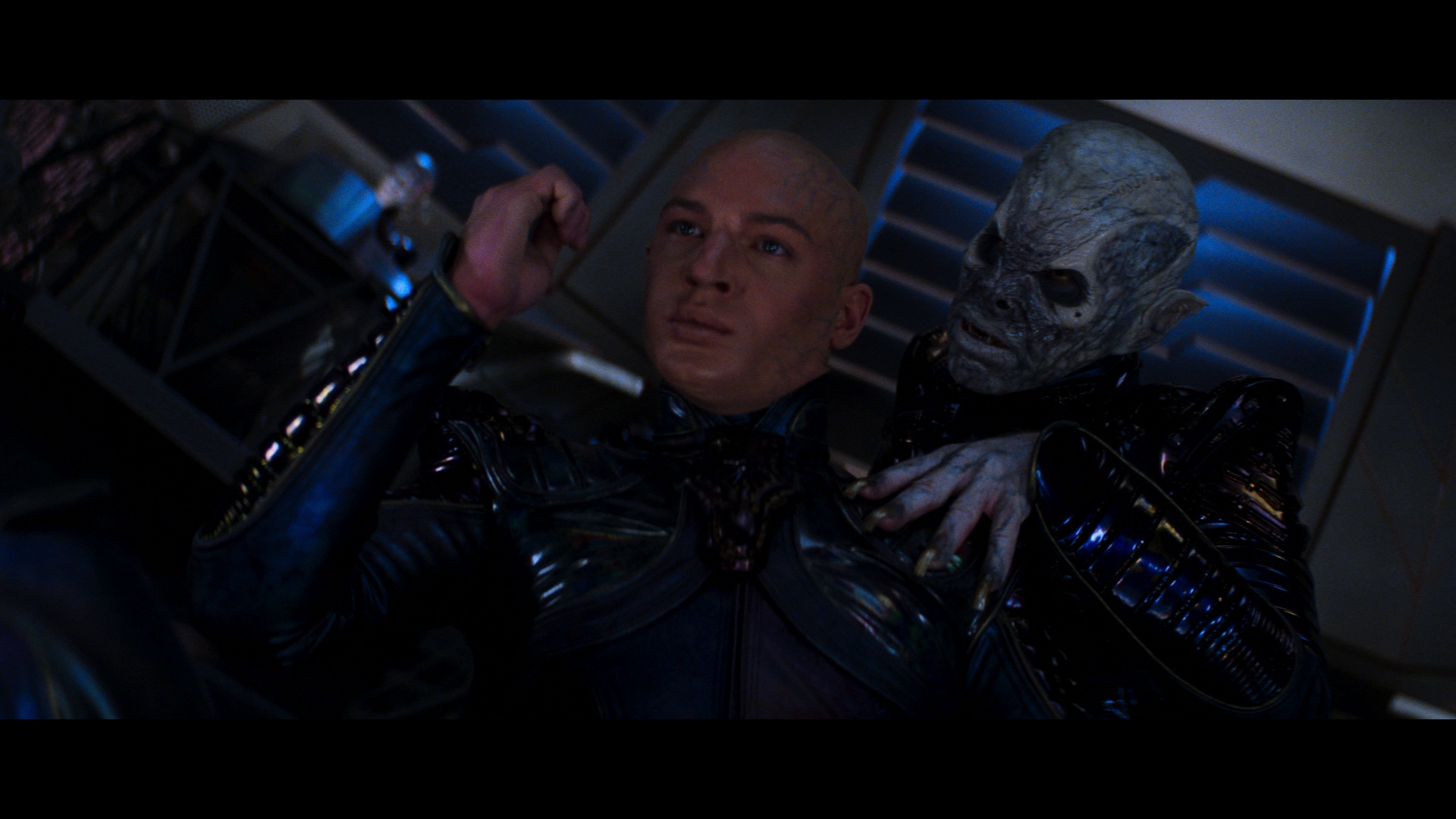
Those Blu-rays I mentioned also include all the supplements produced for previous editions of the individual films, right down to the Easter eggs, though the Evolutions bonus disc included with the first Blu-ray boxed set of the Next Generation films isn’t here, in the same way the 4K set of the original Trek cycle omitted the platter with the Captain’s Summit special. Those weren’t exactly essential, though, and if you have the original set there’s no rule that says you can’t keep it. Infinite diversity in infinite combinations, and all that.
Star Trek: Generations, Star Trek: First Contact, Star Trek: Insurrection and Star Trek: Nemesis are now available in the Star Trek: The Next Generation 4K Collection and in individual editions from Paramount Home Entertainment. Remastered Blu-ray editions are also available, but why wouldn't you future-proof yourself on these.
In Sunday’s paid edition: Warner bumps The Maltese Falcon and Cool Hand Luke up to 4K for its latest centennial editions, and I check out the state of Cohen Media Group’s Jacques Rivette restorations. Let’s get classical. Subscribe so you don't miss anything!
